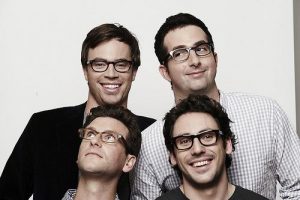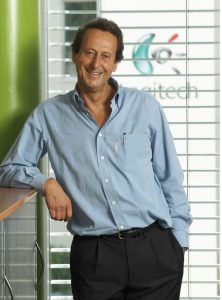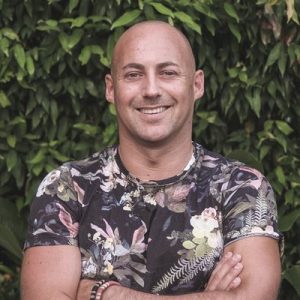Warby Parker : The Story of the Most Innovative Startup of America
Buying goods online is the most convenient way to get things delivered to your doorstep. At present, there is almost nothing that you can’t buy online. Food, grocery, clothes and air tickets, you can get all these things just in a few clicks. Although almost ten years ago, there were limited things that you could order online, slowly the list got enhanced. One such thing that added to the list of the online available items was the customized eyewear, that was introduced by the famous Warby Parker.
The online merchandise was founded by Neil Blumenthal, Andrew Hunt, David Gilboa, and Jeffrey Raider, four students from Wharton, in 2010. The company was founded in Philadelphia and its headquarter is located in New York City.

It was the time when the four friends were sitting in their college lab and discussing how and why the eyewear was so expensive, and there came up the idea of launching a website to sell eyeglasses online. All four of them were convinced that it will be really convenient for people to buy eyewear online. They also discussed the idea with their teachers and got motivated when they too liked the idea.
At the same time, their college hosted an event, the Venture Initiation Program, that was organised to grant money to the new businesses. Luckily, the four got the grant. The grant was worth $2500 which played as the seed money for the launch of Warby Parker.
The four launched Warby Parker after they went through a one-month marketing training. The name for the company came from a journal by author Jack Kerouac.
At the time Warby Parker was launched, the eyewear industry was already dominated by other big company named Luxottica. Luxottica sold the most stylish eyewear at that time and had every brand available at its stores. The problem with the company was that it was selling every brand, but was putting a big price on it.
It was a golden opportunity for Warby Parker, as it was an online store and was letting customers try on five pairs at their homes. The products sold on the site was also affordable, with a starting range of $95.
According to co-founder of Warby Parker, Gilboa, “The idea was really based on two simple premises. One is that a pair of glasses should not cost more than an iPhone, and two, that eyeglasses could effectively be sold online.”
The idea was unique and was providing people with affordable eyewear sitting at their homes. Within a year of its launch, Vogue covered the story. This helped the company with its marketing.
Later, in 2011, the company earned its first round of funding of worth $2.5 million. In the month of September, in the same year, it raised a Series A round funding of $12.5 million, following by a $37 million Series B round funding in the next year. In 2013, American Express and Mickey Drexler invested a $4 million in Webly Parker.
In 2011, the company had sold over 10,000 pairs of eyeglasses, and the company grew to 60 employees.
Next business move that the company took was to launch a physical store. In 2013, Warby Parker launched its first pop-up shop with the name ‘Holiday Spectacle Bazaar’ in a garage in SoHo, New York. Going offline from online was considered a crazy move by many, but it only raised the popularity of the company. Later, they also opened another shop in a school bus, which functioned for a long 18 months.
Now, the company has its physical stores in over 15 different cities. In 2015, the company was valued at $1.2 billion.
Then in 2016, following the footstep of its rival Luxottica, Warby Parker announced to launch its own optical lab in Rockland County, New York, to have its own manufacturing, in order to bypass the middlemen expenses. The company also announced that it would invest $16 million, to build the 34,000-square-foot manufacturing unit, and will employ over 130 people.
In 2018, Warby Parker raised $75 million in Series E funding, making its total funding about $300 million.
The Warby Parker also contributes in the philanthropic works, as it donates a pair of glasses on every pair of glasses sold by the company, under the “buy one, give one” model. In June 2014, Warby Parker reported the donation of 1,000,000 pairs of eyeglasses. The company also claims to be 100% carbon neutral.
The success story of Warby Parker is no less than any other inspiring story. From the story, we learn the importance of people, as the reason behind the success of this company was that it focussed on its customers and their needs.

Yashica is a Software Engineer turned Content Writer, who loves to write on social causes and expertise in writing technical stuff. She loves to watch movies and explore new places. She believes that you need to live once before you die. So experimenting with her life and career choices, she is trying to live her life to the fullest.




